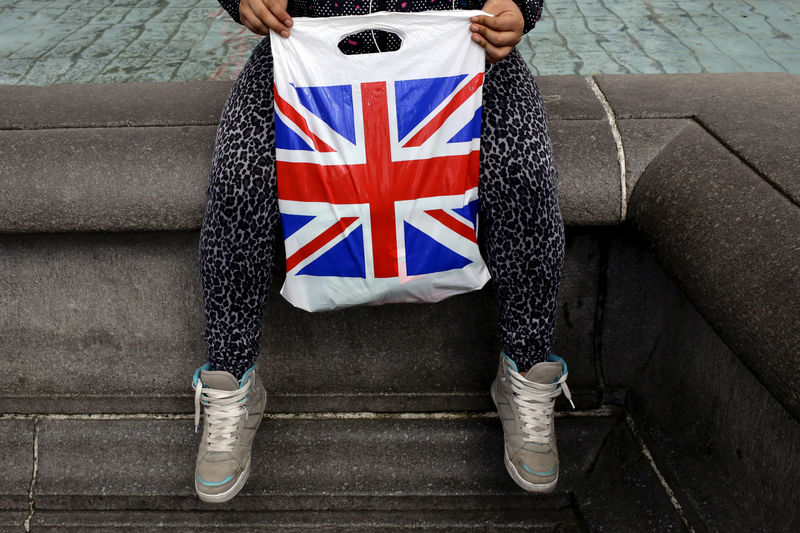By Ana Nicolaci da Costa and Sarah Young
LONDON (Reuters) - British retail spending bounced back in July as sales promotions and good weather outweighed concerns that Britain's vote to leave the European Union would deal an immediate hit to the economy.
Official data has been scarce since the June 23 referendum but most business and consumer surveys have pointed to a sharp slowdown, prompting the Bank of England to cut interest rates last week for the first time since 2009 and restart quantitative easing.
However, British retailers including Tesco (L:TSCO), Next (L:NXT) and John Lewis (JLP.UL) say they have not so far been affected by the shock referendum result.
According to the British Retail Consortium, retail spending in July was 1.9 percent higher than a year earlier, the biggest rise in six months and up sharply from 0.2 percent growth in June, when bad weather added to uncertainty around the vote.
"Little has materially changed for most UK households in the wake of June 23, so it is not surprising to us that sales are simply responding to their normal underlying drivers," said Helen Dickinson, the BRC's chief executive.
The BoE and others expect business and housing investment to slow first, and for consumer spending to hold up until households feel the impact of higher inflation from the collapse in sterling and a possible rise in unemployment.
Monthly data can also be volatile, economists warn, and given that one survey showed the vote caused the biggest drop in consumer morale since 1990, the true impact of Brexit on consumer spending, a pillar of Britain's economy, is still to emerge.
LONGER TERM
The BRC data showed that on a like-for-like basis - a measure which strips out floorspace changes and corresponds more closely with retailers' results - sales were up 1.1 percent on the year in July, compared with a 0.5 percent dip in June.
The robust performance tallied with data from credit card company Visa, which on Monday showed that consumer spending picked up in July.
The BoE predicts real-term household consumption growth next year will slow to just 1 percent, less than half the rate it forecasts for this year.
Research by Barclaycard published on Tuesday showed that consumers were feeling more cautious, with nearly half of them saying they were not confident in their ability to spend more on non-essential items - the highest figure since February.
Retailer Next, however, believes that not all companies will be hit equally, suggesting that Britons could shy away from expensive purchases such as cars and holidays and spend money on clothes and smaller items instead.
Registration figures for July showed demand for new vehicles from private buyers dropped 6 percent in the first full month since the June 23 vote, while holiday firm Thomas Cook said summer bookings were down 5 percent compared to last year.
Another set of data on Tuesday showed the mixed picture of Britain's economy in the run-up to the referendum.
Industrial output expanded 2.1 percent in the second quarter - the biggest rise in a calendar quarter since 1999. But that was driven almost entirely by a surge in April, with scant growth in British industry since then.

The figures also showed Britain's trade deficit surged in June as the economy sucked in a record amount of imports, including from the EU.